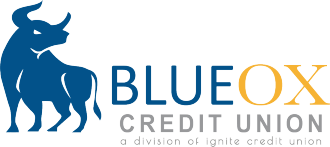what is required when opening a checking account?

Opening a checking account is a fairly simple process, but you'll need to ensure you bring the right documentation with you. Keep in mind that the requirements may vary depending on the financial institution that you choose to bank with. Read on to learn about what a checking account is, the benefits of a checking account, and what you’ll need to have with you in order to get your account up and running right away.
what is a checking account?
Checking accounts are deposit accounts that provide easy access to your funds, which allow you to store your cash, make withdrawals and transfers, write checks, and pay your bills. If you have a checking account, you can access your money by writing a check, setting up an automatic transfer, or using your debit card to make purchases or withdraw funds at an Automated Teller Machine (ATM).
what are the benefits of opening a checking account?
Bank or credit union checking accounts offer financial consumers multiple benefits, especially in regard to convenience and safety. These benefits are at the top of the list:
1. keeps your money safe
Even if your money is stored away in a safe hidden in your home, it is still considered a big risk because large amounts of cash in your home can attract robberies and could also be lost in a fire, flood, or other natural disasters. When you have your money at a bank or credit union, it's not only stored in a secure place but it's also insured. Bank deposits are insured by the Federal Deposit Insurance Corporation (FDIC), while credit union deposits are insured by the National Credit Union Association (NCUA). Both FDIC and NCUA insurance covers up to $250,000 per individual depositor per financial institution and are backed by the full faith and credit of the United States Government.
Another risk with paying bills or other expenses in cash is that the payment may not be tracked or filed appropriately. What do you do if you pay a $200 utility bill with cash and the utility company neglects to credit the payment to your account? How can you prove that you ever made the payment in the first place? When you’re paying with cash, debit card, or via online bill pay from your checking account, everything gets tracked via statements and transaction ledgers. You have a paper trail to prove every payment you ever make.
2. more payment options
Checking accounts are designed to keep your money secure while also keeping it accessible. You can make deposits or withdrawals regularly at any branch location or ATM. You can also use your checking account to expand your payment options. Checking accounts enable you to write checks, pay with a debit card, withdraw cash from an ATM, tap and pay with mobile wallet or initiate digital transfers.
3. easily pay for bills
Today’s checking accounts typically come with intuitive digital banking options such as easy and convenient online Bill Pay. Accessible through online banking, you can establish recurring payments or make one-time-only payments. You can also subscribe to reminders to notify you when bills are coming due. Paying bills has never been easier from your laptop, tablet, smartphone, or other mobile device. If you have a bill that is the same every month, such as utilities, subscriptions, and auto insurance, you can even set up your account for automatic ACH withdrawals. In any case, paying bills online is easier than paying them in cash or by money order.
4. simple money management
Checking accounts allow you to access your money without having to carry and handle unsanitary cash and coins. You’ll also have the ability to have your paycheck deposited directly into your account by your employer. Cashing a paycheck these days can be a challenge without a checking account. Many banks will cash your payroll check but will require you to pay a fee if you aren’t a member. With a checking account, you can collect, deposit, or cash your paychecks in a more convenient (and ultimately less expensive) way. You'll also enjoy account summaries at a glance from within your financial institution’s online banking or mobile app. These digital banking options are a great way for you to keep track of and manage your daily finances, view balances and transaction history, make transfers, and more.
5. enjoy member-specific benefits and perks:
Many financial institutions offer member benefits and perks that are only available to members with checking accounts. For example, when you open a BlueOx Credit Union Amped Checking Account, you’ll enjoy the benefits of ScoreCard Rewards on all debit card purchases. Plus, you can choose how to redeem the points you earn while making everyday purchases. You'll also have access to other benefits that span everything from retail discounts to insurance offers.
documents needed to open a checking account
To ensure the process of opening your checking account goes smoothly and efficiently, you'll need to have the appropriate documents available when applying online or in person. While not all banks and credit unions require every one of these items, it's better to have them on hand even if you don’t need them. Below is a list of the four items you'll likely need to open a checking account at almost any financial institution.
valid government-issued photo ID
Almost every financial institution requires you to present a valid government-issued photo identification (ID) when opening a checking account. This verifies your identity and enables the financial institution to match your name to your face.
The most common form of government-issued photo ID is a driver’s license. If you don’t drive, head to your Secretary of State office and apply for a state-issued ID. Unlike a driver’s license, you don’t need to pass a test in order to get one. Just make sure you bring your birth certificate or valid passport and proof of address with you.
Other forms of government-issued ID include a valid passport or a U.S. military identification card. Just check with the financial institution to make sure these are acceptable.
social security number or individual taxpayer identification number (ITIN)
Financial institutions also require you to have either a valid Social Security number (SSN) or individual taxpayer identification number (ITIN) to open a checking account. If you have an SSN, bring your Social Security card with you to the financial institution so the representative can verify the document. Otherwise, bring proof of your ITIN.
proof of address
You also need to provide something that verifies your current address. While some financial institutions allow you to open a checking account using a post office box, most require that you include a physical address on the account. The best way to prove your address is by bringing in a current official document with your name and address, such as a recent utility bill, credit card statement, etc.
opening deposit
Depending on the financial institution and checking account you choose, there'll be instances in which you are required to make a minimum deposit. For example, at BlueOx Credit Union, we require that members open a savings account and maintain a $5 minimum balance, which equals one share in the Credit Union and makes you an owner of BlueOx. While there's no minimum balance required for a checking account at BlueOx, other financial institutions may require checking account minimum balances or may charge a monthly fee if your balance falls below that amount.
are you ready to open a checking account?
BlueOx Credit Union offers Amped Checking, a free checking account that pays high dividends and offers ScoreCard Rewards on debit card purchases – PLUS so much more! This checking account was designed to help you save time and simplify your life and includes free services to make managing your money easy.
Apply online, stop by any of our branches, or contact a Member Service Representative at (800) 648-8035 today!
« Return to "BlueOx Blog"
